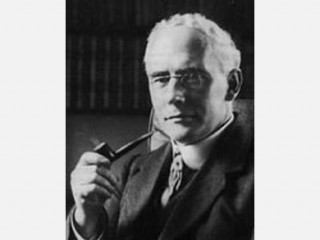
Albert Pollard biography
Date of birth : 1869-12-16
Date of death : 1948-08-03
Birthplace : Ryde, Isle of Wight
Nationality : British
Category : Famous Figures
Last modified : 2010-11-13
Credited as : Historian, specialized in the Tudor period,
The English historian Albert Frederick Pollard specialized in the Tudor period. He was influential in developing historical studies in British universities.
Albert Pollard was born on the Isle of Wight on Dec. 16, 1869, the son of a pharmacist. He attended Jesus College at Oxford, where he was one of the first pupils of R. L. Poole, the famous medievalist. Pollard received his degree in 1891 and won an award in scholarship in 1892 which led to his appointment as an assistant editor of the prestigious Dictionary of National Biography in 1893, for which he wrote approximately 500 articles. While working on the dictionary he also completed two biographical studies, England under Protector Somerset (1900) and Henry VIII (1902).
In 1903 Pollard was elected to the newly established chair of constitutional history at University College, London, which he held until 1931. At his appointment there was little interest in historical studies and few scholars in that area at University College, although the field was beginning to develop in other British universities. In his inaugural lecture Pollard set forth a program to develop historical studies, and he worked arduously on this for the next 35 years, developing curricula and requirements for degree courses.
In 1906 Pollard founded the Historical Association, which served as a link between university professors and teachers in the secondary schools, and he served as president from 1912 to 1915. In 1916 he was largely instrumental in persuading the association to acquire a foundering periodical, History. He edited it for the next 6 years, during which it grew immensely in circulation, quality, and influence. In 1920 he was the major force behind the founding of the university's Institute of Historical Research, which he served as director from 1920 to 1931 and as honorary director until 1939. According to one authority, Pollard was able to accomplish as much as he did for the development of historical studies because he hacked his way through the tangle of London academic politics virtually single-handedly. The institute became a national center for the research of subjects suitable for study in the libraries and archives of London, cooperating with other British universities, sponsoring conferences in conjunction with American scholars, and publishing its own Bulletin beginning in 1923.
Pollard was a member of a government committee on the League of Nations and served on the Committee on Parliamentary Records of 1929. He also ran unsuccessfully for Parliament twice as a Liberal candidate.
Pollard's main interest was in the Tudor period. He wrote a three-volume Reign of Henry VII from Contemporary Sources (1913-1914) and a life of Cardinal Wolsey (1929). He was also instrumental in promoting the modern study of parliamentary history. Generally speaking, his point of view in his many historical works has been characterized as Protestant, English, and liberal. As Pollard was not especially comfortable in handling philosophical or political ideas, his works are characterized by a preoccupation with times, places, and individual actors in history. He also often devoted an unusual amount of space to the minute analysis of words. His literary style is felicitous.
Toward the end of his life Pollard was offered a knighthood but declined it. He died on Aug. 3, 1948, at Milford-on-Sea, Hampshire.
Pollard's life and career are recounted in Matthew A. Fitzsimons and others, eds., The Development of Historiography (1954). An obituary notice by Vivian H. Galbraith is in Proceedings of the British Academy, vol. 25 (1949).
















